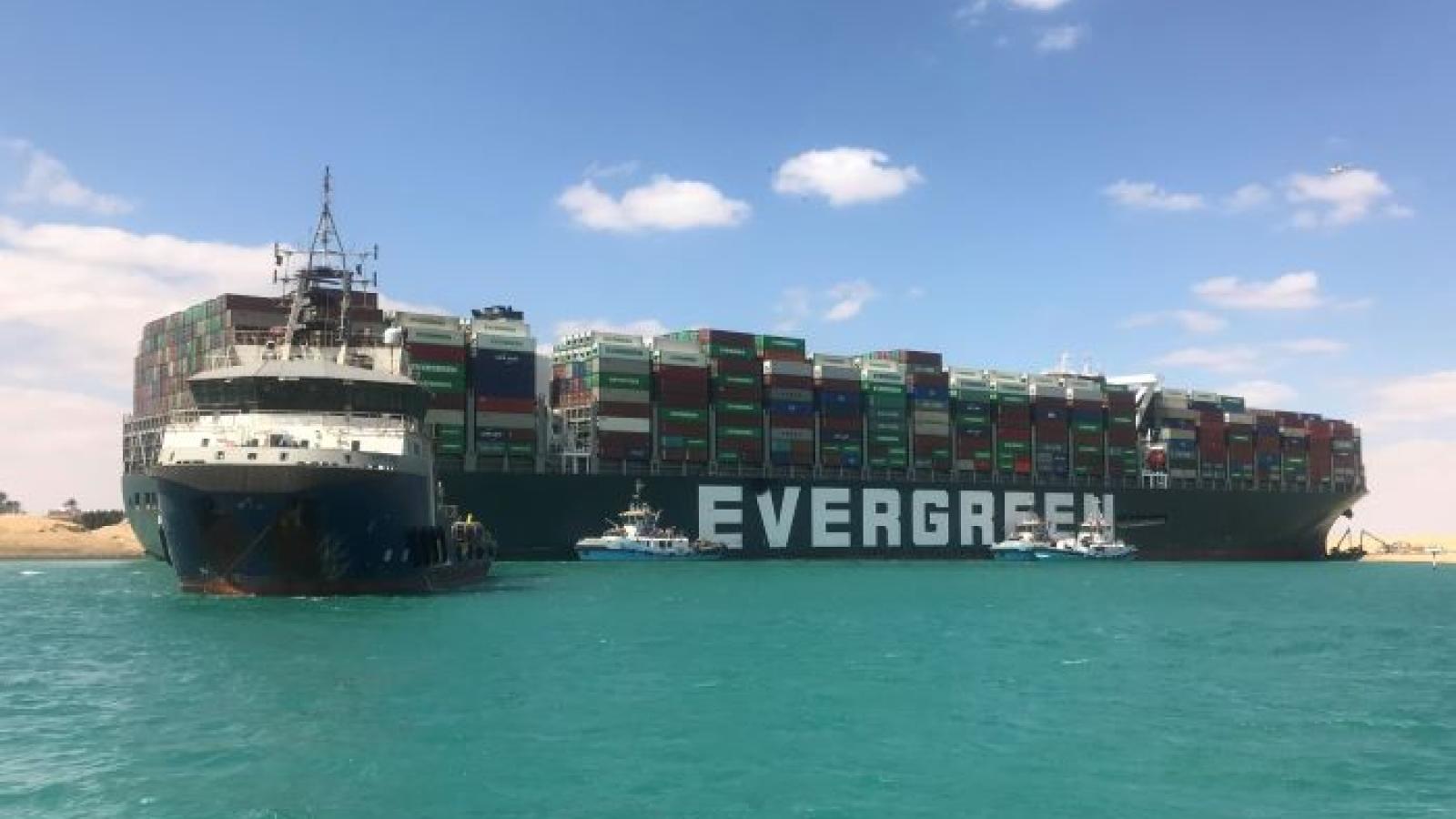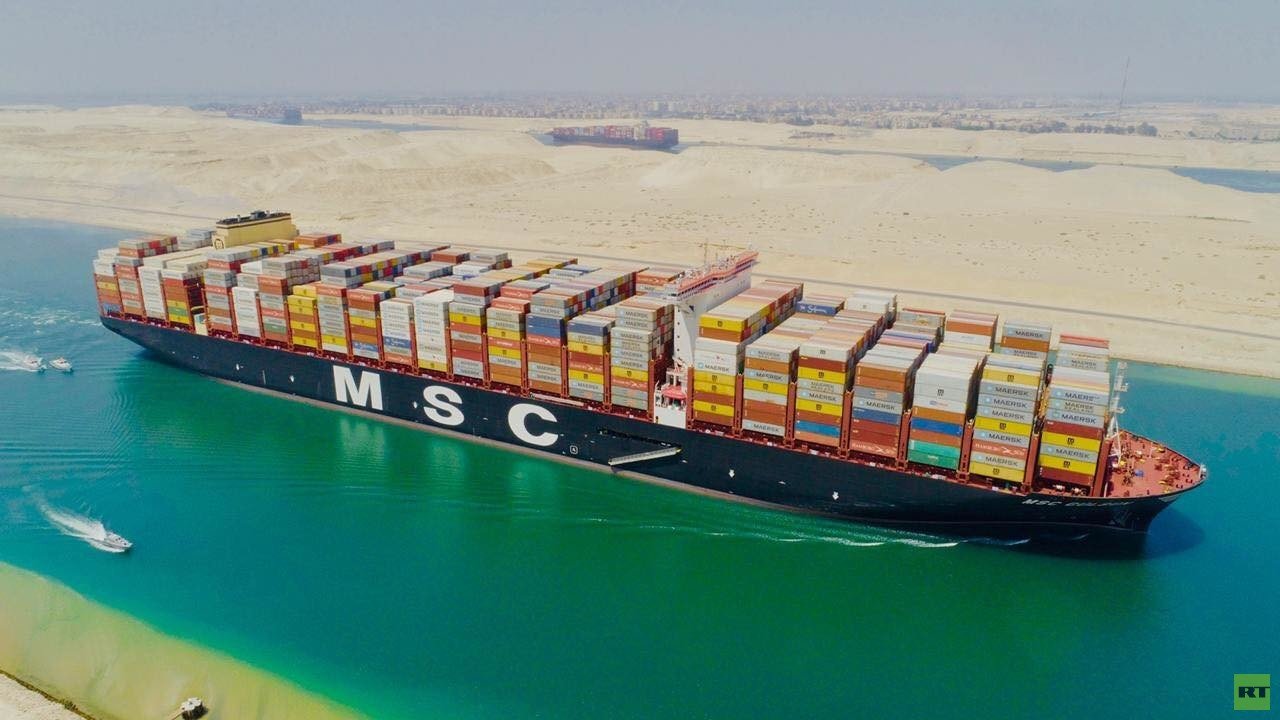By : Matthew Ogieva
CEO & Founder
Business Reimagined Inc.
Boston,MA
www.businessreimagined.net
Suez Canal incident of 2021 served as a wake-up call for the fragility of global supply chains. It highlighted the interconnectedness of the modern economy and underscored the paramount importance of strategic infrastructure like the Suez Canal.
In March 2021, a huge container ship, the Ever Given, got stuck diagonally across the Suez Canal, causing a significant disruption to one of the busiest trade routes in the world. Although the Suez Canal Authority eventually removed the impediment, it highlighted the Suez Canal’s crucial role in global trade, particularly from the perspective of American commerce.

Economic ripples
The six-day blockage disrupted traffic flow and caused delays for hundreds of ships, disrupting the flow of goods and causing economic ripples worldwide.
Logistical headaches
The Suez Canal is a 120-mile waterway connecting the Red Sea with the Mediterranean Sea, providing a crucial shortcut for maritime trade and serving as a release in the global supply chain.
When the Ever Given ran aground, it effectively brought traffic through the canal to a standstill, disrupting the delivery of goods and causing logistical headaches for companies reliant on timely imports and exports.
The effects
The entire supply chain felt the effects, from manufacturers awaiting components to retailers stocking shelves.
The impact on American trade was significant, with delays in fulfilling goods resulting in increased costs and logistical headaches for companies.

Fluctuations in oil prices
Fluctuations in oil prices had significant economic consequences, affecting everything in the ecosystem, from transportation costs to household budgets.
The disruptions also had a major impact on the shortage of semiconductors, which was already a fragile supply chain close to breaking point.
An alarming height
The Suez Canal incident eventually tipped the supply chain to an alarming height, causing a shortage that affected companies like Toyota, Samsung, and Sony, as well as American companies like Ford, Intel, General Motors, and many others. Some companies dropped production of their products to minimal operations.

Global energy security
The Suez Canal disruption also affected the transit of oil tankers, disrupting the flow of crude oil and refined petroleum products. The disruption directly impacted energy markets, influencing oil prices and raising concerns about global energy security.
169 industries
Goldman Sachs analysis stated that the global chip shortage affected at least 169 industries, with the automotive and consumer electronics industries among the worst hits. In 2021, McKinsey calculated that supply chain disruptions would tally to nearly half (45%) of a year’s profits for companies within ten years.
A wake-up call
One long-term disruption to production could cost companies 30-50% of a year’s EBITDA. A 30-day or less disruption can equal 3-5% of EBITDA losses.
The Suez Canal incident of 2021 served as a wake-up call for the fragility of global supply chains. It highlighted the interconnectedness of the modern economy and underscored the paramount importance of strategic infrastructure like the Suez Canal.
Ongoing challenges
As the world grapples with ongoing challenges, including the COVID-19 pandemic and geopolitical tensions, ensuring the resilience and reliability of key trade routes becomes increasingly critical.
To navigate forward, we must acknowledge the unparalleled relevance of the Suez Canal to global trade and, by extension, to American commerce.

Suez Canal remains a vital conduit
The events of 2021 demonstrated the vulnerability of supply chains to unforeseen disruptions, emphasizing the critical need for proactive measures that can mitigate risks and enhance resilience. As the world continues to navigate the complexities of international trade, the Suez Canal remains a vital conduit for global commerce, linking continents, powering economies, and shaping the course of history.
Global economy.
Businesses must engage supply chain strategists to develop a plan to gain a competitive edge in case of significant supply chain disruptions. A supply chain strategic plan is crucial to the sustainability of growth, businesses, and the flow of the global economy.

Read more :
“DNV” approves the training programs of the Suez Canal Academy
Floating dock “DOURADO” successful crossing Suez canal today




